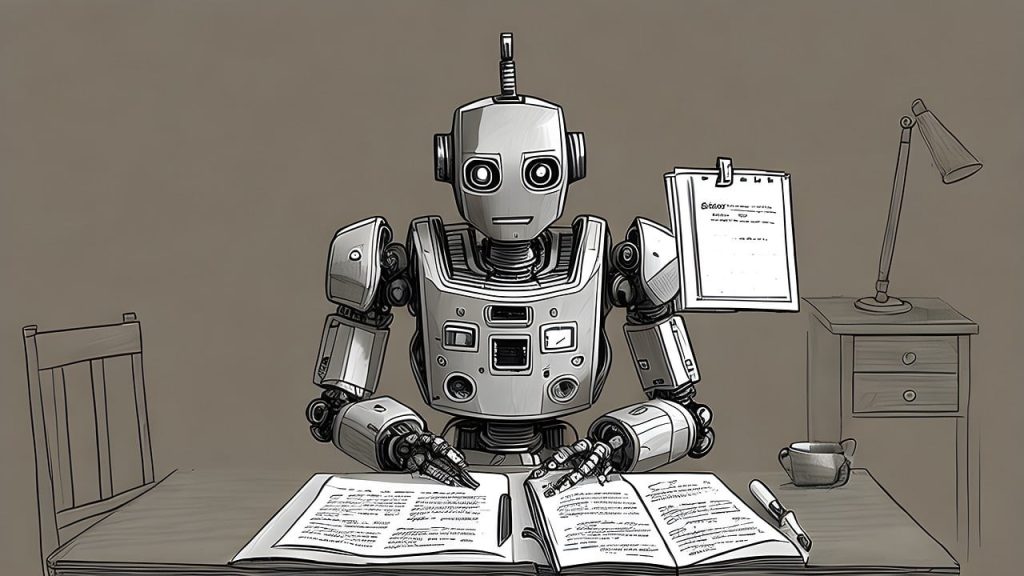In a notable legal case unfolding in Massachusetts, a couple has taken legal action against their local school district, claiming that their son faced unjust disciplinary measures after using generative AI to complete a history assignment. The case highlights the ongoing struggle schools face in balancing academic integrity with the integration of emerging technologies into education.
The plaintiffs, Dale and Jennifer Harris, assert that Hingham High School’s student handbook did not explicitly prohibit the use of AI for completing assignments. They argue that the punishment their son received—Saturday detention and a grade of 65 out of 100—has jeopardized his chances of gaining admission to prestigious universities such as Stanford. The lawsuit, initially filed in state superior court and later moved to federal court, claims that the school’s actions have been excessively punitive and damaging to their son’s academic future.
The Harris family’s allegations portray a system that they believe has strayed from fairness and clarity. They argue that the disciplinary actions taken against their son were part of a broader pattern of intimidation and coercion, aimed at undermining his academic record. In their view, the school’s response to the use of AI was not only misguided but also a significant overreach, particularly given the evolving landscape of technology in education.
On the other side of the dispute, Hingham Public Schools maintain that their student handbook does indeed prohibit the use of “unauthorized technology.” They cite a specific policy against the “unauthorized use or close imitation of the language and thoughts of another author.” In their motion to dismiss the lawsuit, the district characterized the punishment as relatively lenient. They contend that if the court were to side with the Harris family, it could set a precedent leading to an influx of legal challenges from other parents and students regarding everyday school disciplinary measures.
The introduction of generative AI into educational settings has created significant challenges for institutions. Since the launch of OpenAI’s ChatGPT in 2022, many schools have grappled with the implications of easily accessible AI tools for academic integrity. In the wake of this technological shift, various districts attempted to ban AI use outright, only to reconsider as they recognized the potential educational benefits of these tools. Guidance from state departments of education has been slow to emerge, leaving many schools without clear policies on AI usage.
A national survey conducted by the Center for Democracy and Technology highlights a troubling trend: schools are increasingly imposing disciplinary measures on students for using AI inappropriately. This survey revealed that historically marginalized students, including those from communities of color and English language learners, face disproportionate punishment in these situations. The Harris family’s lawsuit raises important questions about the consistency of disciplinary practices within the Hingham district, especially as they allege that another student was permitted into the National Honor Society after using AI for an English paper. The school counters that the Harris son was ultimately allowed into the society after a deferral period.
This case touches on deeper philosophical questions regarding the role of AI in education. As generative AI continues to evolve, the line between assistance and academic dishonesty becomes increasingly blurred. The Harris family’s lawsuit challenges whether the use of AI should be outright prohibited in academic settings, particularly given that the Massachusetts Department of Elementary and Secondary Education has yet to establish clear guidelines on the technology’s use in schools.
Supporters of integrating AI into education argue that these tools can enhance learning experiences, enabling students to engage with material in innovative ways. They suggest that rather than viewing AI as a threat, educators should consider how to incorporate it responsibly into curricula. This perspective aligns with the belief that as technology evolves, educational practices must also adapt to prepare students for a future where AI is ubiquitous.
Critics, however, caution against the risks associated with unregulated AI use in academic settings. They argue that relying on AI for assignments can hinder critical thinking and problem-solving skills, undermining the educational process. The concern is that if students come to depend on AI tools for their work, they may not fully develop the analytical skills necessary for higher education and beyond.
The legal battle initiated by the Harris family underscores the urgent need for schools to develop comprehensive policies regarding AI usage. As generative AI becomes more integrated into the fabric of everyday life, educational institutions must find ways to embrace its benefits while safeguarding academic integrity. This may involve creating guidelines that differentiate between acceptable and unacceptable uses of AI, fostering a culture of responsibility and ethical behavior among students.
The outcome of this case may set significant precedents for how schools across the country handle similar situations in the future. As parents and educators navigate this new landscape, the balance between innovation and academic honesty will be critical. The Harris family’s plight illustrates the broader tensions at play as schools grapple with the implications of technological advancements in education.
Ultimately, the ongoing discourse surrounding generative AI in schools calls for collaboration among educators, policymakers, and technologists. Developing a shared understanding of the potential risks and rewards associated with AI will be essential in crafting effective policies that benefit all students. As this legal case unfolds, it may serve as a catalyst for broader discussions about how educational systems can adapt to a rapidly changing world, ensuring that they equip students with the skills they need to thrive in an increasingly complex landscape.

